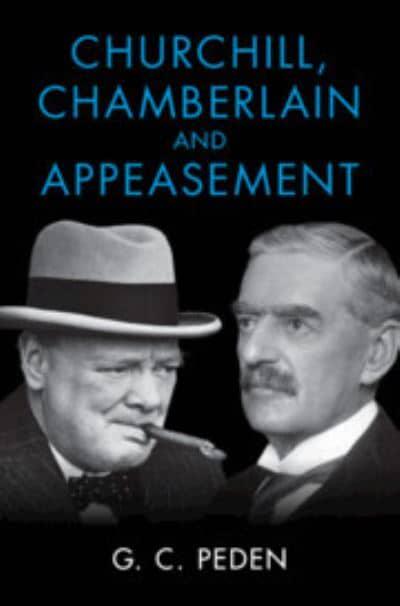Churchill, Chamberlain and appeasement
- ISBN: 9781009201988
- Editorial: Cambridge University Press
- Fecha de la edición: 2023
- Lugar de la edición: Cambridge. Reino Unido
- Encuadernación: Cartoné
- Medidas: 24 cm
- Nº Pág.: 395
- Idiomas: Inglés

Was Churchill correct when he claimed the Second World War could easily have been prevented if Chamberlain had not appeased Hitler? How far did Churchill and Chamberlain differ on defence and foreign policy? To what extent was Chamberlain responsible for military defeats in 1940? In this new account of appeasement, G. C. Peden addresses these questions and provides a comparative analysis of Chamberlain and Churchill's views on foreign policy and strategic priorities, explores what deterrence and appeasement meant in the military, economic and political context of the 1930s and where Chamberlain and Churchill agreed and disagreed on how best to deter Germany. Beginning in 1931 when Chamberlain became Chancellor of the Exchequer, this book explores the evolution of British policy towards Germany through to the Munich Agreement and its aftermath within the context of Britain's power to influence international affairs in the 1930s and of contemporary intelligence.
Chamberlain : guilty man?
Why historians differ on appeasement
Two contrasting personalities
Who was who in Whitehall
The intelligence services
Churchill and Whitehall in the 1930s
Measuring power
Sea power
Air power
Land power
Defence industries
The wider economy
Public opinion and national morale
Collective security
Intelligence and perceptions of power
Dealing with the great depression
The war debts controversy
Manchuria and the end of the ten year rule
Disarmament and defence requirements, 1932-34
Reshaping grand strategy, 1934
Anglo-Japanese relations
The German threat increases
The Ethiopian crisis
Drawing up the rearmament programme
The Rhineland crisis and after
Rearmament and the role of the army
Financing rearmament
Relations with the United States and Japan
Seeking a general settlement in Europe
The Inskip defence review
Eden's resignation
First reactions to the threat to Czechoslovakia
From May 'crisis' to September crisis
Berchtesgaden and Godesberg
Munich
The aftermath of Munich
Towards a continental commitment
Chamberlain still hoping for the best
The end of Czechoslovakia
The guarantee to Poland
Negotiations with the Soviets
Secret contacts with Germans
The decision for war
The 'phoney war'
Norway and the fall of Chamberlain's government
Finest hour
The limits of British power
What would Churchill have done?
Would it have been better to fight in 1938?
Concluding reflections







